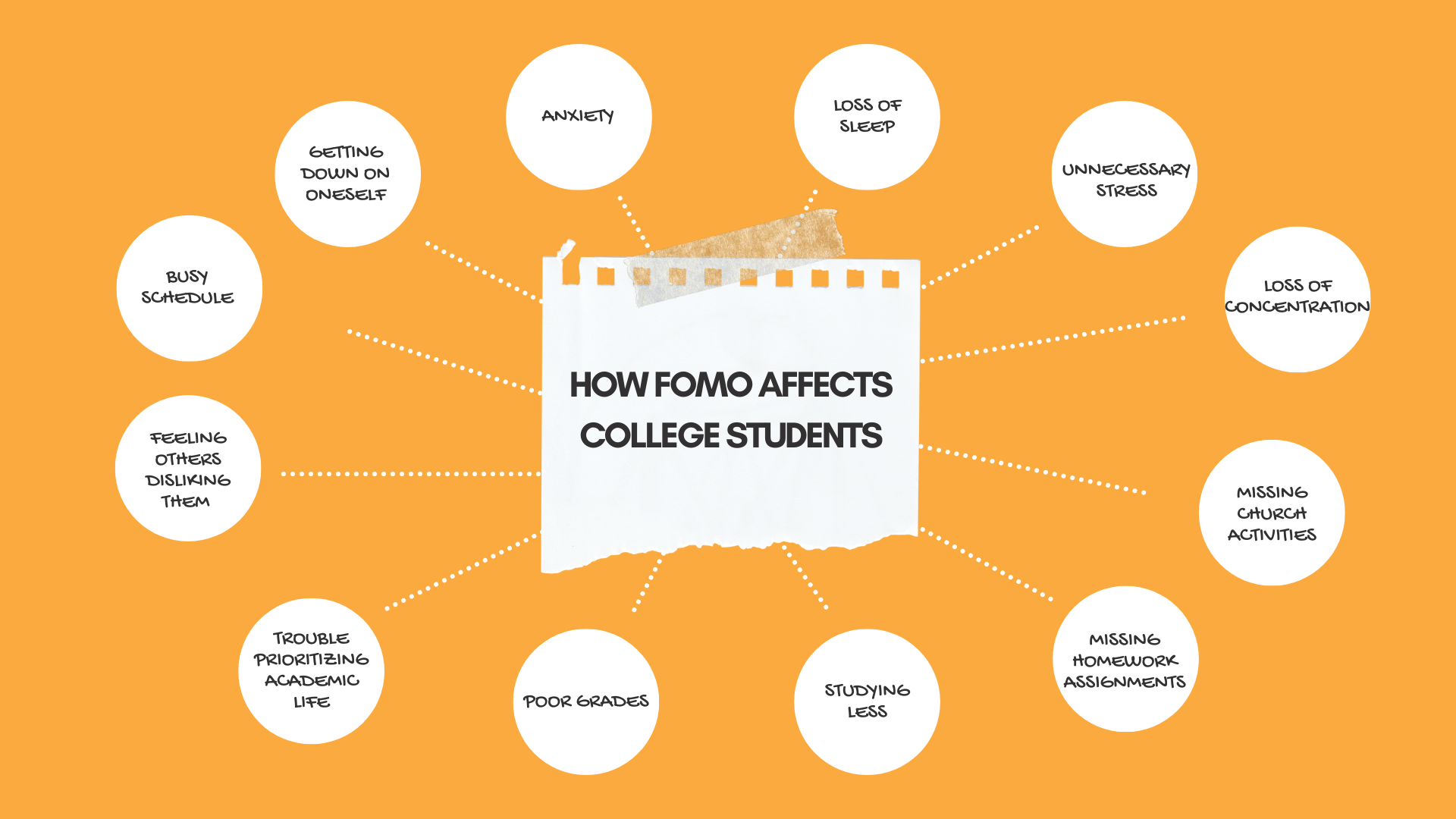
According to some college students, FOMO, or the fear of missing out, is not only prevalent, but is also affecting their day to day life.
One effect of FOMO for college students is a busy schedule. University of Oklahoma masters student Natalie Young said FOMO causes her to freeze up when having to choose between different things. She said she ends up scheduling herself to be busy in an effort to fit it all in.
“FOMO for me is about freaking out when I have a choice to make because, what if I choose one thing and end up missing another better thing?” Young said.
BYU student Emily Houtz said she enjoys being with people. However, there is so much to do between school and life that she is unable to do everything.
Houtz said FOMO makes her less likely to make friends as she is unable to focus around others. “(FOMO) makes me get to bed later, skip social events or not study as much as I’d like,” she said.
Catherine Stone, a BYU student majoring in elementary education, said she often struggles to prioritize academics over a busy social life.
Though improving, Stone said, “My FOMO was much worse last semester and caused me to get poor grades due to procrastination and getting very minimal sleep.”

Different students agreed anxiety is one of the biggest effects of FOMO.
BYU psychology student Audra Brown said, “Sometimes when I have too much homework or I get distracted by something myopic and lose out on a better opportunity, I get down on myself.”
Brown said FOMO causes her to have anxiety about the nature of her relationships and lose sleep.
University of Utah English student Megan Tingey said they are affected most by FOMO from missing out on life opportunities, causing anxiety.
BYU mechanical engineering student Jason Dafinch agreed with Tingey and said FOMO adds to his anxiety.
Dafinch said, “It just makes me sad and it makes me feel like the people don’t like me all the time.”
Though FOMO may have adverse effects, Brown mentions positive aspects. She said because of FOMO, she takes more opportunities and has more experiences she would not have had otherwise. It motivates her to get homework done on time to do these things.
Philip D. Rash, psychologist and clinical professor at BYU, said FOMO is related to social comparison, which has been around for a long time.
“The more we compare our situation with others, the greater the chance for adverse consequences including poor self-concept, discontent, loneliness, resentment and even mood and body image concerns,” Rash said.
As the use of electronic devices rises, Rash said there is a risk of neglecting other healthy important life functions such as relationships, exercise and school activities. Spending less time on social media is important, especially if usage creates feelings of anxiety, sadness or loneliness.
In BYU’s Counseling and Psychological Services, Rash said they “definitely see the effects of social comparison as we work with students who struggle with perfectionism, anxiety, depression and other concerns.”
For recommendations for someone experiencing FOMO, Rash said to check in with your emotions during social media use. One should make more time for in-person activities and focus on doing things that bring satisfaction.
Rash said, “We can probably all stand to be more self-compassionate, adopting an attitude of kindness and acceptance towards ourselves and take care of ourselves instead of comparing ourselves to others and the very incomplete portrayal of life on a post.”
If FOMO or social comparison is negatively impacting a student’s life, Rash said to reach out to someone they trust or contact CAPS.
CAPS offers therapy groups, individual therapy and crisis services with trained professionals. Call 801-422-3035 or head to their website to schedule and find more information.




